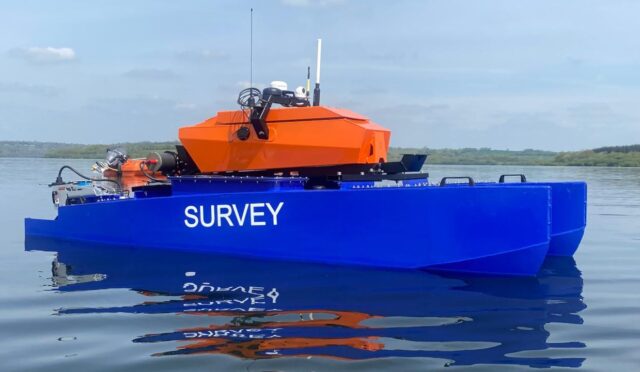China’s Denial of Investigation Request
Sweden’s Foreign Minister Maria Malmer Stenergard announced on Monday that China has rejected a request for prosecutors to investigate a Chinese vessel linked to the recent severing of two telecom cables in the Baltic Sea. This denial comes despite China’s earlier assurances of cooperation with regional authorities regarding the incident.
The cables were damaged on November 17 and 18 while located in Swedish territorial waters. The ship Yi Peng 3 has attracted suspicion, as tracking data shows it was in proximity to the cables during the time of the cuts. Notably, this vessel had been anchored in the Kattegat Strait, which lies between Sweden and Denmark.
The Yi Peng 3’s Movements and China’s Response
Tracking information from Vesselfinder indicated that the Yi Peng 3 was seen heading north out of the Kattegat Strait on Saturday. On Monday, Chinese authorities confirmed that the ship had set sail, citing the need to ensure the well-being of its crew. Foreign ministry spokeswoman Mao Ning elaborated that the shipowner had made an informed decision to resume operations after consulting with relevant parties.
Mao further expressed China’s commitment to maintaining communication and cooperation with the involved countries to facilitate the ongoing investigations. However, the Swedish government has noted a lack of response to their request for direct investigation involvement.
Sweden’s Ongoing Diplomatic Efforts
Foreign Minister Stenergard emphasized that while Swedish police have been present for observation purposes during the Chinese-led investigation, there has been no authorization for Swedish prosecutors to conduct an inquiry aboard the Yi Peng 3. She highlighted that the absence of permission hindered the prosecution’s ability to involve themselves directly in the investigation process.
This situation has raised concerns, especially following an invitation extended to Swedish, German, and Finnish authorities to observe the Chinese investigation. A Danish representative was also included, reflecting Denmark’s earlier role in facilitating discussions among the nations.
Challenges in Investigating the Incident
Henrik Soderman, a Swedish prosecutor, revealed to AFP that no investigative actions have been conducted aboard the ship, including questioning of the crew or technical assessments. While the Swedish Accident Investigation Authority (SHK) was allowed to assess the situation, their role is limited to observational duties rather than formal criminal investigations.
John Ahlberk, the director of SHK, stated that their team was focused on gathering information to draw conclusions from their observations. Meanwhile, Soderman indicated he was still awaiting details regarding the findings from the SHK.
Sweden’s Request for Investigation Measures
Stenergard reiterated the ongoing request for Swedish prosecutors to be granted the authority to undertake specific investigative measures aboard the Yi Peng 3. She clarified that Sweden has communicated its position clearly to Chinese authorities, emphasizing the importance of collaboration in the investigation.
In a previous initiative, Sweden sought China’s cooperation, with Prime Minister Ulf Kristersson underscoring that the request did not imply any accusations against Beijing. European officials have, however, expressed concerns about potential sabotage in light of the geopolitical tensions following Russia’s invasion of Ukraine.
Recent Cable Damages Heighten Tensions
The incident has drawn attention due to the timing and nature of the cable damages. Early reports indicated that the Arelion cable, connecting Gotland to Lithuania, was damaged on November 17, followed by the severing of the C-Lion 1 submarine cable that links Helsinki to Rostock the next day.
The escalation of tensions in the Baltic Sea region has been significant since the onset of the Ukraine conflict in February 2022. Notably, a series of underwater explosions in September 2022 had already compromised the Nord Stream pipelines, and the cause of those explosions remains unresolved.
Recent Developments in Undersea Infrastructure
Adding to the precarious situation, an underwater gas pipeline connecting Finland and Estonia was deactivated in October 2023 after suffering damage from a Chinese cargo ship’s anchor. Such incidents underline the fragility of undersea infrastructure and the growing scrutiny of foreign maritime activities in the region.
As investigations continue, the implications of these events on international relations in the Baltic Sea remain to be seen, with stakeholders closely monitoring developments to ensure regional security and stability.







